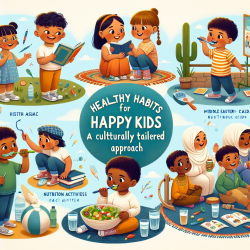As speech-language pathologists, our goal is to foster effective communication skills in children, particularly those with autism spectrum disorder (ASD). A recent scoping review titled The importance and challenges of observing social interactions in autistic preschoolers during inclusive educational settings offers valuable insights into how we can enhance social interactions for autistic preschoolers in inclusive settings.
Key Findings from the Research
The review analyzed 17 observational studies focusing on social interactions of autistic preschoolers in inclusive educational settings. The studies revealed several important findings:
- Autistic children often initiate interactions less frequently than they respond to them.
- Interactions with adults are more common than those with peers, highlighting the need for adult mediation in peer interactions.
- Most interactions by autistic children are nonverbal, emphasizing the importance of encouraging verbal communication.
- Social interactions are more frequent during free play than structured activities.
Implementing Findings in Practice
To improve outcomes for autistic preschoolers, practitioners can consider the following strategies based on the research findings:
- Encourage Initiatives: Create opportunities for autistic children to initiate interactions, particularly during free play. This can be facilitated by providing structured prompts and gradually reducing support.
- Train Peers: Educate neurotypical peers on how to effectively communicate and engage with autistic children. Peer training programs can promote inclusive play and social interactions.
- Focus on Verbal Communication: While nonverbal communication is common, practitioners should encourage the use of verbal communication through modeling and reinforcement.
- Contextual Variability: Observe and compare social interactions across different contexts (e.g., free play vs. structured activities) to tailor interventions that address specific needs in various settings.
Challenges and Future Research
Despite the valuable insights, the review also highlighted challenges such as the lack of detailed coding of adult behaviors and the need for more longitudinal studies. Future research should focus on:
- Developing comprehensive observation grids that include both child and adult behaviors.
- Conducting longitudinal studies to track the development of social skills over time.
- Exploring the impact of different activity contexts on social interactions.
In conclusion, direct observation of social interactions in inclusive preschool settings provides critical data that can inform tailored interventions to enhance social skills in autistic children. By implementing the strategies derived from this research, practitioners can create more inclusive and supportive environments for all children.
To read the original research paper, please follow this link: The importance and challenges of observing social interactions in autistic preschoolers during inclusive educational settings: A scoping review.










